
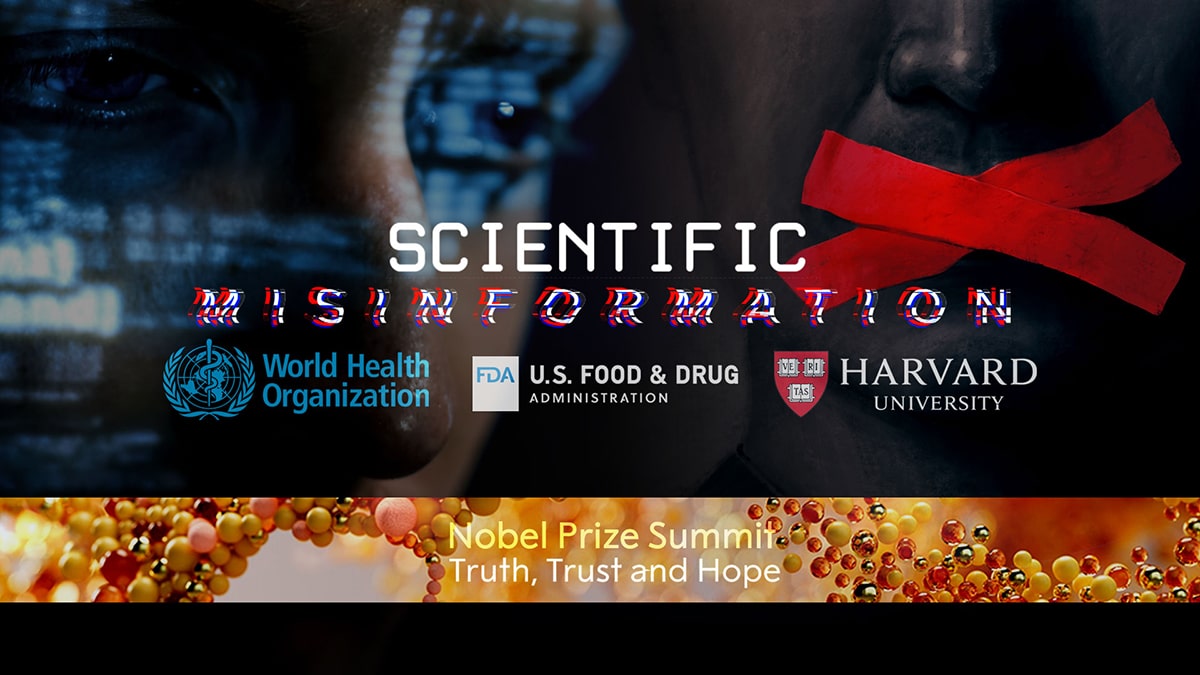
Why misinformation bans are misinformed and dangerous
We will be among the many online participants glued this week to the Nobel Prize Summit taking place in Washington DC on 24th to 26th May inclusive. We’ll be trying to understand how one of the most esteemed academic and intellectual forums in the world aims to tackle what it sees as the biggest threat to people’s trust in science. It’s called ‘scientific misinformation’ and it’s apparently bad and harmful like a virus (forgetting that most viruses are likely an essential component of the evolution of life).
We’re going to argue here that eliminating misinformation – which can hardly be preempted in the case of uncertain and complex issues which have yet to be decided unequivocally – is likely as bad as trying to eliminate viruses on our planet altogether. If you wipe out all viruses, you’d eventually wipe out all of life.
This issue of alleged ‘misinformation’ is also important to us – as we hope it is to you – because we have been targeted many times over the last three years as a source of ‘scientific misinformation’. Yet, as the science has unravelled, it turns out we were right and our accusers, principally privately owned social media companies, were wrong.
We explain this in a detailed article on scientific misinformation that we published in early March 2023, which provides evidence of the misinformation issued by supposedly trusted authorities, such as the World Health Organization (WHO), the Centers for Disease Control and Prevent (CDC) in the USA, the European Medicines Agency (EMA), and many others.
The ‘war on misinformation’
Combatting misinformation is nothing new but covid gave new impetus to those seeking to censor, stifle scientific debate and shut down dissenting voices, be it in relation to covid, vaccine hesitancy, natural health, climate change or any other subject where opposing views are considered to be a threat.
With covid, the ‘war on misinformation’ took on a different tone. Well respected scientists and doctors who spoke out were slandered, smeared and cancelled in order to marginalise or discredit their concerns. Individuals who dared to question the mainstream narrative were banned by social media companies and had their video channels deleted overnight, often losing years’ worth of content. Many of those strong enough to stand up and express a different view lost their livelihoods and reputations in concerted and repeated attacks on their character. Organisations which have consistently spoken out, like ours, were shadow banned on social media platforms.
It quickly became apparent that the supposed harms to the public came not from those warning about covid and the measures used to ‘control’ the pandemic, but from the lies, distorted facts and data and manipulated science coming from ‘trusted sources’, mainstream media and so called fact checkers. This manipulation was central to a strategy intended to instil fear in the public, and nudge people into complying with restrictions and particular medical interventions.
With the claimed ending of the emergency by the World Health Organization (WHO), the censorship machine is shown no sign of abating. In fact, quite the opposite, it seems to be gathering even more pace.
We take a look at what’s happening now, who the players in the ‘war on misinformation’ and censorship game are, and what their plans appear to be. Up for grabs is nothing less than our ability to engage in any kind of open debate in which we, as members of the public, scientists or doctors, substantively disagree with a particular view of ‘science’ on specific issues such as pandemics or climate change.
A science that has given up
Open the Nobel Prize website, and you’ll be welcomed by the words of Nobel Prize Laureate, John Polanyi, saying
“Science never gives up searching for truth” – John Polanyi, Nobel Prize Laureate
Only a short scroll down the page, we are met with two other key words: trust and hope. In the upcoming Washington DC-based summit taking place this week, Truth, Trust and Hope, the Nobel Prize laureates will be joined by various experts in an attempt to tackle the spread of a new disease they are calling ‘scientific misinformation’. We are told this new disease severely damages the public’s trust in science. Therefore it behooves the strategists in this ‘war on misinformation’ to come up with a solution to reignite the public’s trust in scientists, institutions and the government. That includes supranational institutions such as the WHO, which has consistently twisted and moulded ‘the science’ and data to meet its agenda whilst directing governments and media to follow suit.
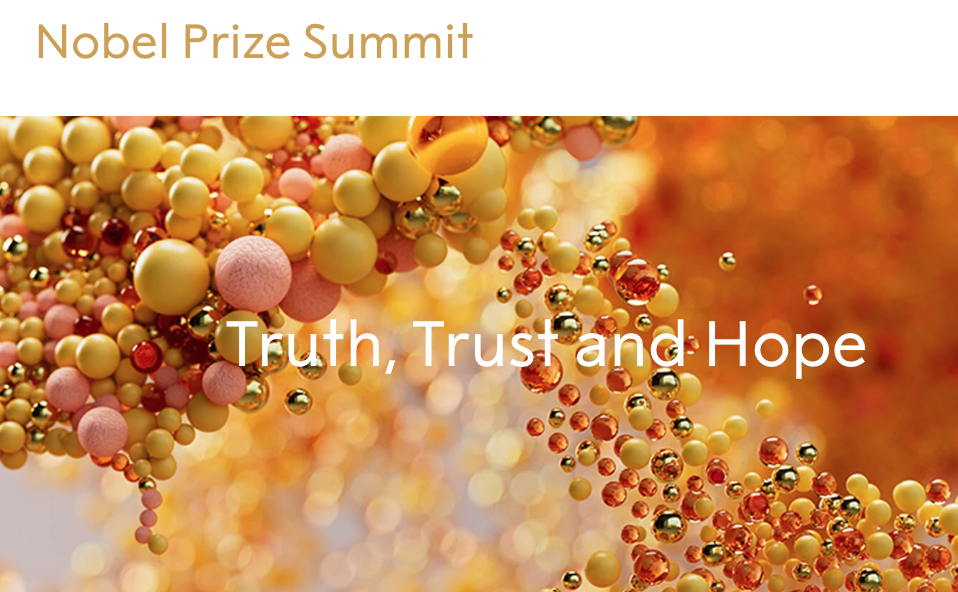
It is our supposition that what is masquerading as a mission, a fight for good science and truth, is, in fact, exactly the opposite. The Nobel Prize Summit’s agenda is disguised as one that aims to encourage critical thinking and good science, but what’s happening on a global scale is an attempt to pull off a wholesale silencing of discourse and dissent. This is exactly what happens in tyrannical and totalitarian regimes, and there is emerging evidence that the globalisation agenda being justified as necessary to manage global problems like pandemics and climate change requires such top-down, totalitarian control.
The goal appears to be to reduce complex, uncertain issues to a single, over-simplistic narrative that has been selected by the planet’s biggest power brokers. Sadly, Polanyi, it seems to us, may have been way too optimistic. The current interpretation of ‘science’ appears to have given up searching for objective truth capable of withstanding challenge from dissenters or detractors. Skepticism and interrogation is exactly what has fashioned good science over the last few thousand years. What we’re seeing now is the emergence of ‘scientism’, a poor cousin of the real thing. As philosopher Asa Wikforss says in her video that encourages people to join the upcoming summit, “we need to do something”. And she’s right.
“WHO is championing universal access to credible health information, and building resilience to misinformation for people worldwide. At the same time, more efforts are needed to better understand the scale of the infodemic, and impact of strategies used to manage it, in order to develop new toolkits for countries.” – World Health Organization, referencing its response to the claimed ‘infodemic’
– World Health Organization, referencing its response to the claimed ‘infodemic’
Prepping the machine for total censorship
There are various organisations, departments, projects, non-profits and initiatives that have sprung up over the past 3 years, and continue to appear, as attempts to stop the spread of so-called mis-, dis- and mal-information continues apace. For ease, we’ve documented a selection of them in the following table, along with their aims and how this is likely to impact freedom of speech, discourse and access to good science, a concept that’s been at the heart of ANH since Rob Verkerk established the organisation back in 2002.
Table 1: Organisations attempting to silence discourse
|
Organisation Name |
Aims |
Potential implications |
| WHO infodemic response initiative
|
Manage false or misleading information through AI-supported response and social listening tool to identify rising narratives. Establishing fact checking groups. Setting up new alliances, such as the Africa Infodemic Response Alliance, to counter ‘misinformation’. | Surveillance, limitations on free speech, narrow view of science, reduced public debate on human health, preferential consideration of drug and vaccine based health technologies. |
| Center for Countering Digital Hate | Expanded remit from anti-semitism and misogyny to ‘anti-vaxx misinformation’, climate change, elections and sexual/reproductive rights. Arbiter of what constitutes ‘dangerous’ content, and forcing social media companies to remove such content. | Silencing discourse and dissenting voices e.g. The ‘Disinformation Dozen’ report published in 2021 that aimed to destroy the credibility of doctors or other practitioners, that had spoken against the narrative (e.g. Mercola). |
| The U.S Food and Drug Administration (FDA) Rumour Control | Set up to ‘stop the spread’ of misinformation. Provides alternative ‘facts’ on various issues such as COVID-19, sunscreen and dietary supplements. | Providing only one narrative, removing dissenting voices. Likening misinformation to a ‘virus’ that spreads. Clear revolving door with Big Food and Big Pharma means that biases are rampant. Claims about natural products that pose a threat likely to be deemed misinformation regardless of the quality of science or evidence; works hand-in-hand with Federal Trade Commission (FTC) that polices commercial communications and is clearly anti-natural health. |
| Poynter Institute – International Fact Checking Network | Set up to bring together fact-checkers across the world to fight against misinformation. | Over $4 million in funding from Facebook to International Fact-Checking Network (Poynter Institute). Not based on proper science that includes an interpretation of the totality of available evidence. Likely to censor health-saving information e.g. on low cost, natural products that can be self-administered |
| Information Futures Lab (IFL) at Brown University | University institute with the aim to fight misinformation. Key advisory to media, technology and public health. Came up with the idea of prebunking. | Prebunking = “debunking lies, tactics or sources before they strike”. It’s considered to be a method of “inoculation” against misinformation – again likening it to a viral infection to which the solution is to inoculate people and discourage discourse |
| Trusted News Initiative founded by the BBC | Partnership of different organisations including Financial Times, Google/YouTube, Meta, Facebook, Microsoft, Thomson Reuters, Twitter and the Washington Post, that work together to “build audience trust and to find solutions to tackle challenges of disinformation”. | Proponents of the initiative are proud to say that they “take on disinformation in real time”. That means unbalanced news reporting, suppression of dissent, stigmatising proponents who oppose the narrative of the status quo |
| Harvard Kennedy School’s Shorenstein Center on Media, Politics and Public Policy Technology & social Change Project | A project that aims to explore “media manipulation as a means to control public conversation, derail democracy and disrupt society” as well as debunk media campaigns. | Funded by various organisations including the Gates Foundation, Google and Facebook. However, the lead investigator, Joan Donovan, has been forced by the Harvard Kennedy School dean to quit by summer 2024 as she does not have permanent tenure along with winding down the project |
| The Organisation for Economic Co-operation and Development DIS/MIS Resource Hub | A peer learning platform for sharing knowledge, data and analysis of government approaches to tackling misinformation. | Brings together governments, policy makers and citizens that “work on establishing evidence based international standards”. Another step in the direction of globalisation and unifying of scientific opinion |
| The United Nations Countering Disinformation | Report submitted by the Secretary-General with best practiced encouraged by the UN for countering disinformation. | It seems the UN has good intentions: “…freedom of expression also covers critical speech, including speech that questions societal norms, expressions that take the form of irony, satire, parody, or humour […] such speech must not be unduly restricted under the guise of combating disinformation” – an honourable idea yet far from the stark reality in which dissenting voices are silenced and good science is increasingly hard to access |
| European Fact-Checking Standards Network | Brings together independent fact checking organisations in an effort to “combat disinformation”. | Similar to all of the above. Developed by the European Code of Standards for Independent Fact-Checking Organisations that sets the criteria to ensure that fact checkers adhere to high standards of methodology and transparency |
| Vaccine Confidence Project | Created to better understand and overcome growing vaccine scepticism around the world. | Providing strategies to counter vaccine hesitancy that may be coercive and disrespectful of properly informed consent. |
Racket News recently published its ‘Report on the Censorship-Industrial Complex: The Top 50 Organizations to Know’, which lists 50 organisations, all of which have the aim of tackling misinformation, stifling free debate, disagreement and discourse, seeking instead to deploy a “shared vocabulary”. If that’s not enough, there are a further 18 organisations listed by Trusted Web that are also joining this fight. The anti-‘disinformation’ machine is ramping up to build a coordinated approach to tackling a very specific interpretation of misinformation that benefits the status quo. It presents a very real and growing threat to our freedom of speech and continued access to uncensored information, including on how we can manage our health through natural means.
Inoculation or natural immunity?
Contagion has spread to the organisations, such as those listed in the table above, heading the fight against ‘misinformation’. With fear over the dangers of viral infections having been triggered in so many, and mass vaccination having been presented as the solution, people’s minds, it would seem, are highly receptive to likening mis/disinformation to a virus, with the solution coming in the form of an inoculation.
Prebunking is one of the forms of inculation the public is being offered, being designed to “…build psychological “immunity” against online misinformation” along with outright censorship (which we assume could be, in turn, likened to effective sterilising neutralising antibody-based immunity, something, interestingly, covid-19 ‘vaccines’ promised but never offered).
We’re of the mind here at ANH that there’s a much better solution: critical thinking. Instead of silencing the voices that we do not want to hear, we should encourage dialogue along with critical thinking. Surely a world where everyone is entitled to their own views, opinions, beliefs and ideas that can be shared, discussed openly and expressed is better than a totalitarian state in which a very small group of individuals with deep vested interests decides what’s right and wrong, true or false? Science and biology are among those disciplines in which the variation in responses between individuals, coupled with complexity and uncertainty, mean that absolute truths are as rare as hen’s teeth. Shades of grey, rather than either black or white, are the norm, not the exception.

Other facets we know historically are of great importance when confronted with novel problems, such as coping with the release of lab-reared infective agents, are human ingenuity and creativity which in turn fuel innovation. Instead of looking at ways to stop the flow of information, ideas and thinking, we should look at how we can foster critical thinking. To do this we need dialogue, discourse and even dissent, all conducted within an open, respectful and transparent context. This process of interrogating new hypotheses is essential to testing and subsequently rejecting or validating them.
The Council of Europe encourages teachers to empower students to critically understand and assess information, noting that “…young people are particularly vulnerable to propaganda, misinformation and fake news”. Yet they ignore one huge element: scope. Critical thinking is about careful thinking directed to a particular goal, but if the scope of information to which we’re exposed is very limited, and if we’re only exposed to one narrative, or one scientific view, critical thought will be limited to the narrow scope of that one narrative or view. And what if that scope is so limited it makes for a decision-making process that leads to a flawed conclusion? Who knows? Because if you’ve removed all other possible options against which that narrative or view should have been compared, how can you possibly know if the view you’ve been presented is right, or relevant to your specific individual, local or even regional context?
Despite the Council of Europe encouraging critical thinking in students, in practice there many universities that have exhibited a desire to limit the scope of debate and restrict academic freedom. The story of Lynn Comerford PhD, is one such example, after the director of women’s studies at California State University, East Bay, was criticised for asking students to read Robert Kennedy Jnr’s “The Real Anthony Fauci: Bill Gates, Big Pharma, and the Global War on Democracy and Public Health”. While Dr Comerford was accused of “indoctrinating” her students, she had to “vigorously defend” her decision to expose her students to a diversity of literature prevailed following a complaint by an anonymous administrator at the university.
Surely academic freedom should allow for the exposure to diverse ideas and encouraging critical and creative thinking in students, allowing them to develop and express their own opinions and ideas?
In direct contrast to the Nobel Prize Summit meeting in Washington DC this week, the European Network of Scientists for Social and Environmental Responsibility (ENSSER) is holding a conference that overlaps (26th and 27th May) to discuss the conflicts between public policy and independent science
What can you do?
The scientific establishment doesn’t have a monopoly on the use of the virus/immune analogy when it comes to mis/disinformation. Let’s use it ourselves. We will argue that the best way to counter any viral infection is through building resilience, this included building innate, trained immunity that only comes from being exposed to potential pathogens. This is why we supported the early response from the Swedish authorities during the early covid-19 waves – which involved keeping schools open so that innate immunity would develop.
Resilience cannot be achieved through locking yourself in your home away from a virus – which is exactly what so many governments actually did by mandating lockdowns and masking. Resilience is built by being exposed, and then developing trained immunity.
Flipping back to the comparison with dis/misinformation, we will argue passionately that’s why we mustn’t censor and limit the flow of information just because it doesn’t resound with one particular view. We must be exposed to a diversity of information and views and allow freedom of expression and choice, while cultivating a sense of respect and responsibility in society more generally. That just doesn’t happen uunder an authoritarian regime. In such regimes, respect is displaced by fear. Keeping populations in a suspended state of fear for as long as possible increasingly seems to be one of the objectives of those who are attempting to control the narrative.
If you want an inside look at how the sophisticated global campaign to build trust in science by narrowing the scope of public discussion around health issues under the name of eliminating dis/misinformation, sign up to this week’s Nobel Prize’s – Truth, Trust and Hope Summit. It won’t surprise you that we think there is a very real risk that the global initiative against mis/disinformation will have the exact opposite effect: it will further weaken public trust in science, corrupting the scientific method itself. This, it could be argued, is an inevitable consequence of the co-opting of the global research community by vested interests.
For those who can’t attend the Nobel Summit this week, worry not! In two weeks, we’ll be releasing our own analysis of the summit, including views on how we can move forward in our fight to protect free speech in science, and the keep the scientific method itself intact. Keep your eyes, but mostly keep your minds, open, flexible and resilient!


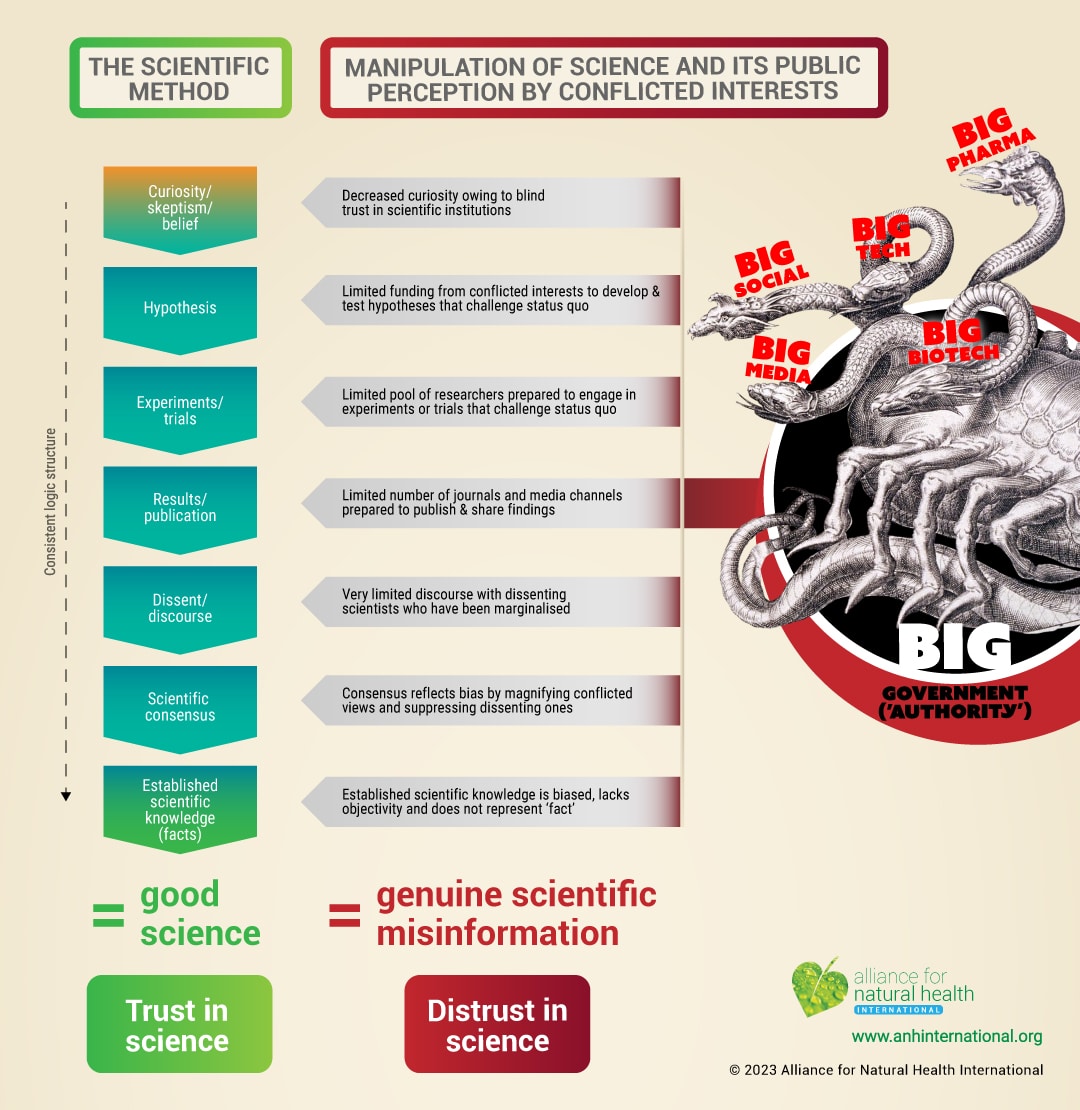
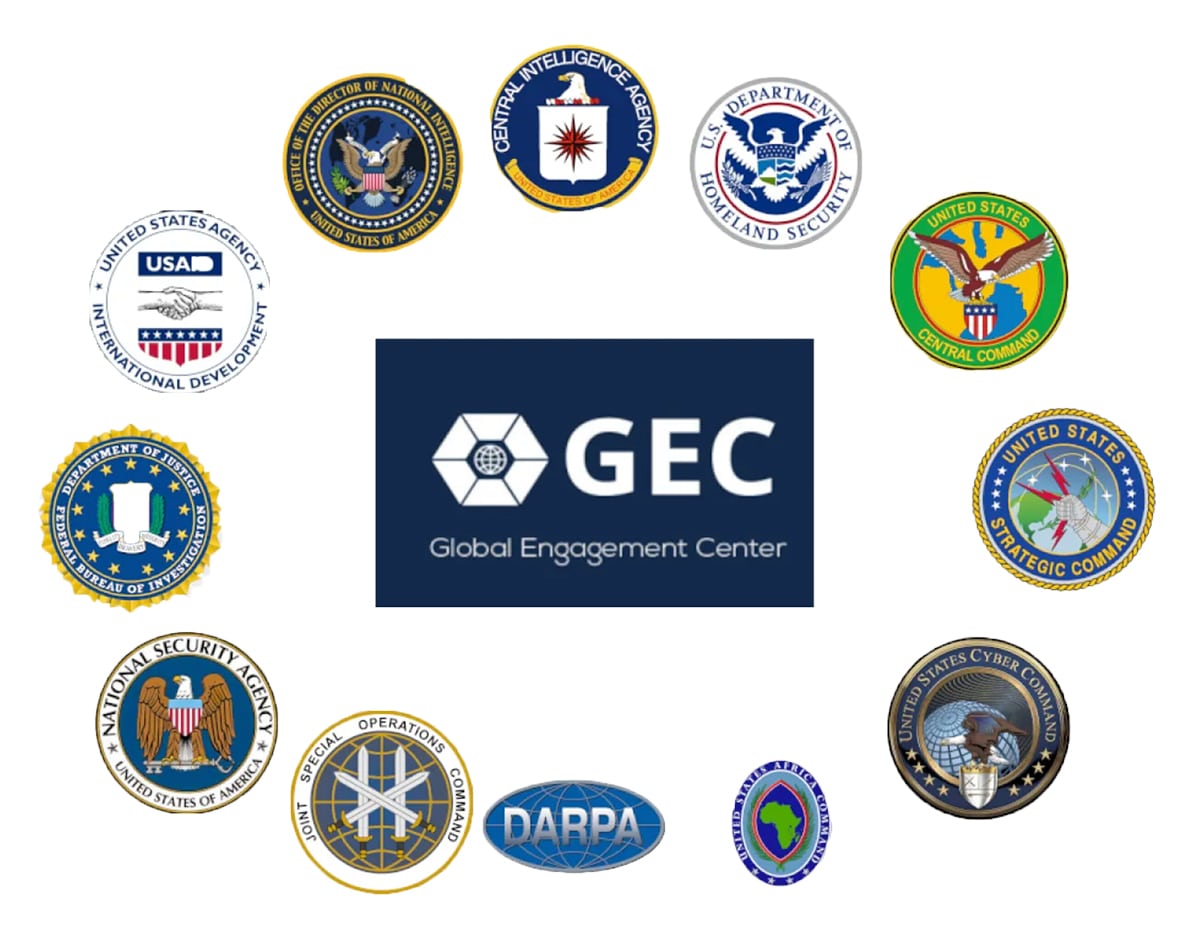
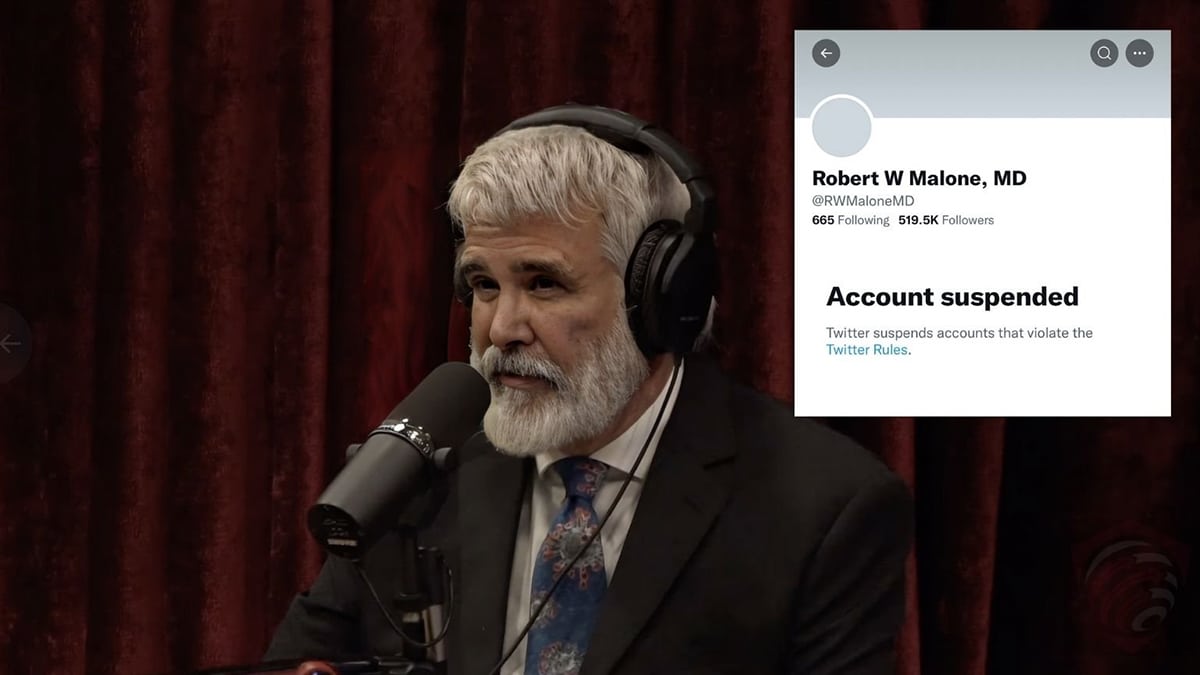
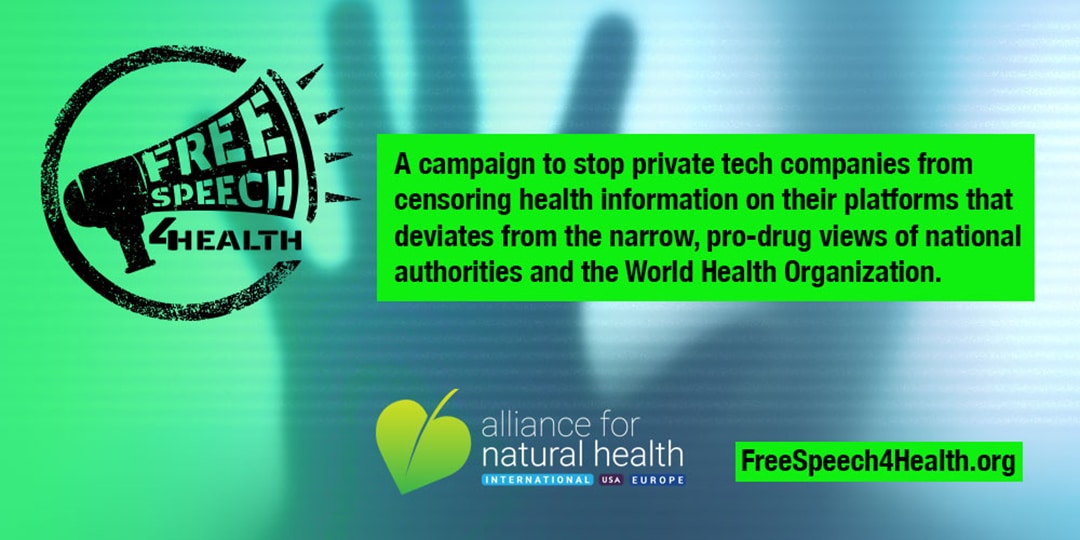
0 Comments